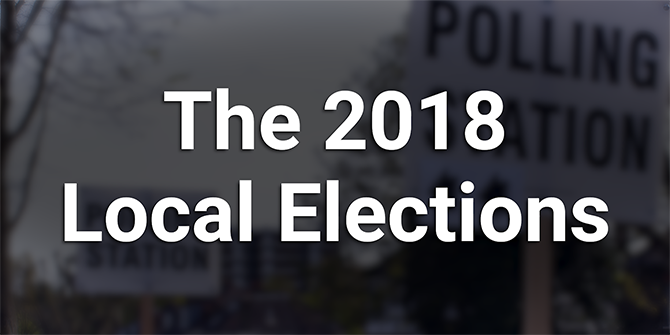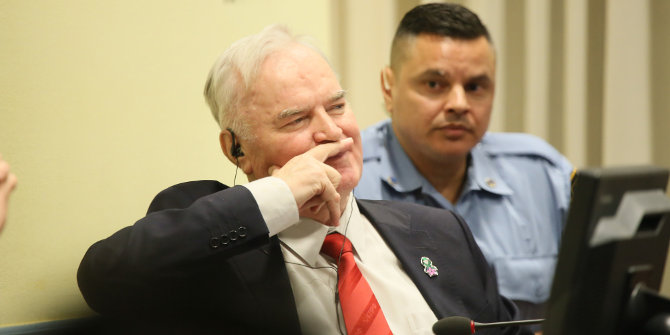Our experts analyse the commitments made at COP26, whether they can be achieved and the challenges that lie ahead to make it actually happen.
 “Ambitious and timely promises for climate action that are unlikely to be fulfilled”
“Ambitious and timely promises for climate action that are unlikely to be fulfilled”
After the dust settled at COP26, governments had adopted or announced commitments that would collectively limit global warming in 2100 to 1.8°C. These are ambitious and timely promises for climate action—and they are promises unlikely to be fulfilled.
Consider the idea of eliminating the $555 billion countries spend each year subsidizing coal, oil, and gas. This would seem a logical first step toward meaningfully addressing the causes of climate change, but fossil fuel subsidies are notoriously challenging to kill. Even more than the economic disruption of lost jobs, politicians fear a political backlash from allowing fuel prices to rise, as seen recently in France, Ecuador, and Panama. My own research shows corporations that rely on fossil fuels through their supply chain are also likely to oppose policies targeting fossil fuels.
COP26 was a tour-de-force for the fossil fuel industry. Just days before the conference began, the G20 countries were able to muster only a vague commitment to “phase out and rationalize, over the medium term, inefficient fossil fuel subsidies.” Even this language proved too much for India and China, whose insistence on further weakening “phase out” to “phase down” in the final agreement nearly brought COP President Alok Sharma to tears. As Greta Thunberg put it, “COP26 even watered down the blah, blah, blah.”
Yet, despite the sour conclusion at COP26, there remains real momentum toward decarbonization. Over 150 governments now have net-zero targets that, even as distant, unclear, or absurd as they may be, provide advocates with an opening for accelerating climate action. Perhaps even more importantly, the balance of power in the struggle over decarbonization is shifting as the renewables industry grows and gains greater political influence. The fossil fuel interests won the battle at COP 26, but the war goes on.
Michael Lerner is an assistant professor of public policy and administration in the LSE Department of Government. His research focuses primarily on policy advocacy, including corporate lobbying on climate change, transnational advocacy networks, and the innovation and diffusion of environmental policy.
 “Leaders can’t do it alone, citizens and economic elites also need to accept the changes that climate policy demands”
“Leaders can’t do it alone, citizens and economic elites also need to accept the changes that climate policy demands”
Keeping the promises on climate change is not up to the leaders only. In democratic countries promise-keeping is also up to the citizens. Citizens need to consistently elect public officials who are willing and capable of delivering on climate goals, and hold accountable officials who do not (in the courts and on the streets). Many climate goals are long-term, so promise-keeping is not even up to today’s citizens only but to future generations of citizens too.
Keeping climate promises is to a large extent up to the economic elites as well. In democratic countries such as the US, policy outcomes tend to reflect the policy preferences of high-income citizens when they conflict with the preferences of lower-income citizens.
This implies that world leaders are not going to keep their promises unless citizens and economic elites change their current stance on climate policy. According to a recent 10-country survey that included New Zealand, Singapore, the US, and the UK, 60% of the citizens believe they are not financially able to make the individual efforts that climate policy may require of them, and 46% believe they don’t need to change their habits. Economic elites in the US and several other key countries lobby mostly against the kind of policies that would deliver on the climate promises. This trend might change soon, as some companies increasingly realise that the expected effects of climate change on supply chains, infrastructure and sales can be devastating for their business aims.
World leaders can keep their promises only if citizens become more willing to go through the economic and behavioural changes that climate policy demands, and to vote for willing and able leaders. And only if certain economic elites lobby for climate policies that can benefit not only them, but most other people as well.
Francisco Garcia-Gibson is a Marie Skłodowska-Curie research fellow in the LSE Department of Government. He works on the ethics of climate political action.
 “Any national political system will face considerable tensions moving towards a ‘net zero’ future”
“Any national political system will face considerable tensions moving towards a ‘net zero’ future”
The COP 26 party is over. Following quickly forgotten pledges, concern about rather modest commitments and images of sleepy heads of government, the main area of attention now falls on the implementation of the various national commitments. Even if one may take some small comfort at the direction of travel, any national political system will face considerable tensions moving towards a ‘net zero’ future.
For the world of regulation and regulatory agencies, these challenges are particularly prominent. For one, questions as to who should decide as to the redistributional trade-offs involved in a ‘net zero’ approach go to the heart of questions of democratic legitimacy. Should regulatory bodies be in charge of long-term decision-making or are these the kind of decisions supposedly to be left to elected politicians? There are also questions of whether the current instruments of regulation are ready to deal with the kind of questions that arise from making regulated industries turn ‘net zero’. Those looking at the instruments of ‘better regulation’ to steer regulatory policy across sectors will also be disappointed. After all, those instruments with their focus on ‘cost to business’ and ‘red tape’ are usually found to be in contradiction with the goals of ‘net zero’.
There are also questions about how to regulate the national commitments in the first place. At the national level of government, is this the time for a national ‘meta-regulator’ tasked with progress-chasing and evaluation of different regulatory decisions? The past record of ‘better regulation’ in view of extensive gaming of baseline costs and the need to allow for short-term political fixes to stave off ministerial embarrassment does not offer much comfort. Should we therefore rely on very light-touch coordination across different regulators and policy areas? This would certainly reduce the incentive to game numbers, but it would come at the expense of overall oversight and consistency. These questions confront politicians and regulators alike with hard trade-offs and inevitable untended consequences. These questions need to be considered despite the temptation to relegate these ‘technical’ questions into the too difficult drawer and to rely on grand statements and projects.
Martin Lodge is Professor of Political Science and Public Policy and Deputy Head of Department for Research in the LSE Department of Government, and Director of the Centre for Analysis of Risk and Regulation (CARR) at the LSE. His key research interests are in the areas of executive politics and regulation.
Note: this article gives the views of the authors, and not the position of the LSE Department of Government, nor of the London School of Economics.
Image credit: ‘Boris Johnson greets Joe Biden’ by COP26





